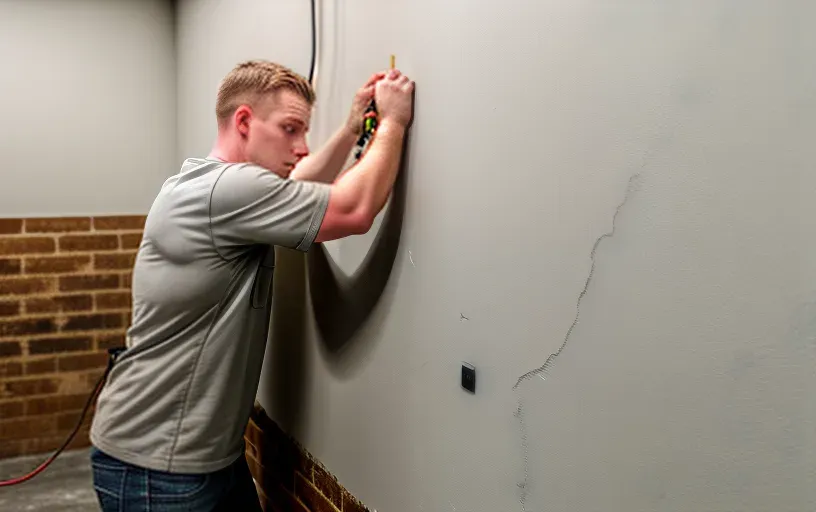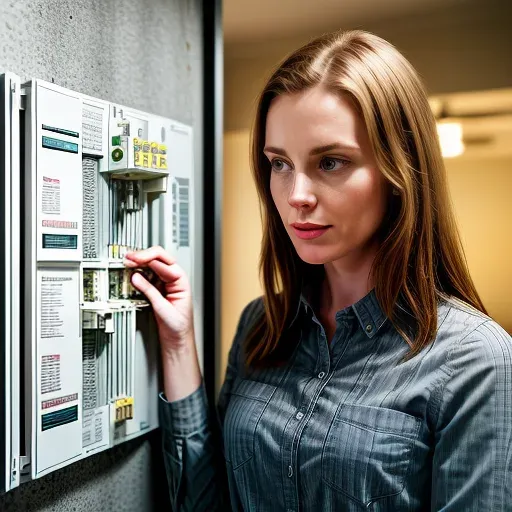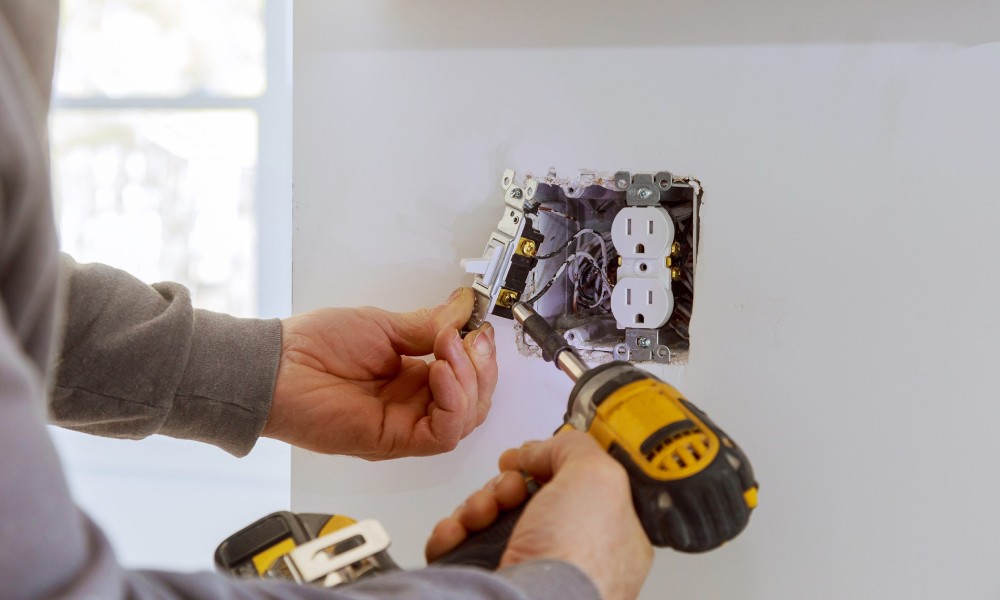Become An Electrician
Learn From Real Estate Electric
(Choose an area of focus. Refreshed monthly)
A Guide for Homeowners:
Understanding the Basics of Electrical Systems
Electricity is at the heart of modern living, powering everything from lighting and appliances to climate control in your home. Yet, many homeowners don’t fully understand how their electrical systems work or how to maintain them properly. In this guide, we’ll walk you through the fundamentals of electrical systems, explain their components, how they function, and provide essential maintenance tips to keep them running smoothly.

Benefits of Understanding Electrical Systems
- Safety: Knowledge of your electrical system can prevent accidents and hazards. Understanding how to reset breakers or replace an outlet safely can be lifesaving.
- Cost Savings: Regular maintenance and early detection of issues can save you money on costly repairs down the road.
- Informed Decisions: Knowing the basics empowers you to make informed decisions about upgrades or repairs, ensuring they are done safely and according to code.
What is an Electrical System?
An electrical system in a home refers to the network that delivers electrical power from the utility company to your appliances, lighting, and other devices. It consists of several key components working together to provide a safe and reliable source of electricity. Heres 3 steps explaining the basics:
1. Wiring
Definition: The wiring in your home consists of copper or aluminum conductors that carry electricity from the electrical panel to various outlets, switches, lights, and appliances. Learn more about wiring types and installation best practices.
- Types of Wiring: Different types of wiring materials like Romex (NM-B), UF-B (underground feeder), and BX (Armored Cable) serve different purposes depending on installation requirements.
- Maintenance Tips: Regularly inspect wires for damage, such as fraying or discoloration. If you notice any signs of wear or aging, it’s best to consult a professional electrician. Read our guide on electrical safety for more tips.
2. Circuit Breakers
Definition: Circuit breakers are safety devices designed to protect your electrical system from overload and short circuits. They act as a switch that automatically shuts off the power if there’s an electrical issue, preventing potential hazards. Understand how circuit breakers work and why they’re important.
- Types of Circuit Breakers: There are different types, including standard breakers, GFCI (Ground Fault Circuit Interrupter) breakers for wet areas, and AFCI (Arc-Fault Circuit Interrupter) breakers that detect potentially hazardous arc faults.
- Maintenance Tips: Periodically test your circuit breakers by pressing the “Test” button to ensure they trip correctly. If a breaker trips frequently, it might indicate an overloaded circuit or a problem with the wiring that requires professional attention.

3. Outlets
Definition: Outlets are electrical connectors that provide power to appliances and devices in your home. They vary in type and configuration to suit different needs. Find out more about outlet installation and maintenance.
- Types of Outlets: Common types include standard outlets (for general use), USB outlets (for charging devices), and outdoor outlets (weatherproof for outdoor use).
- Maintenance Tips: Regularly check outlets for signs of wear, such as discoloration or sparking. If you notice any issues, it’s important to have them repaired or replaced by a licensed electrician.
Common Electrical Problems
Even with proper maintenance, electrical issues can arise. Here are some common problems homeowners may encounter:
- Flickering Lights: Could be caused by loose wiring, old fixtures, or outdated dimmer switches. If flickering persists, consult a professional to avoid potential hazards. Read more about preventing electrical hazards.
- Tripped Circuit Breakers: Often due to overloaded circuits. Avoid overloading outlets and consider upgrading your electrical panel if frequent trips occur. Learn about electrical panel upgrades.
- Power Outages: Can be caused by a problem with the main electrical panel, bad weather, or overloaded circuits. Know how to reset your breaker box safely. Check out our tips on handling power outages.
- Outlets Not Working: Could indicate faulty wiring or a tripped breaker. A professional electrician can diagnose and repair the issue. Contact a licensed electrician for assistance.

Conclusion
Understanding the basics of electrical systems is crucial for homeowners. By familiarizing yourself with wiring, circuit breakers, and outlets, you can ensure your home is safe, efficient, and reliable. If you encounter any issues or need further guidance, it’s always best to consult a professional electrician. Real Estate Electric is here to help! Contact us today for expert electrical services in Chesapeake, VA.


